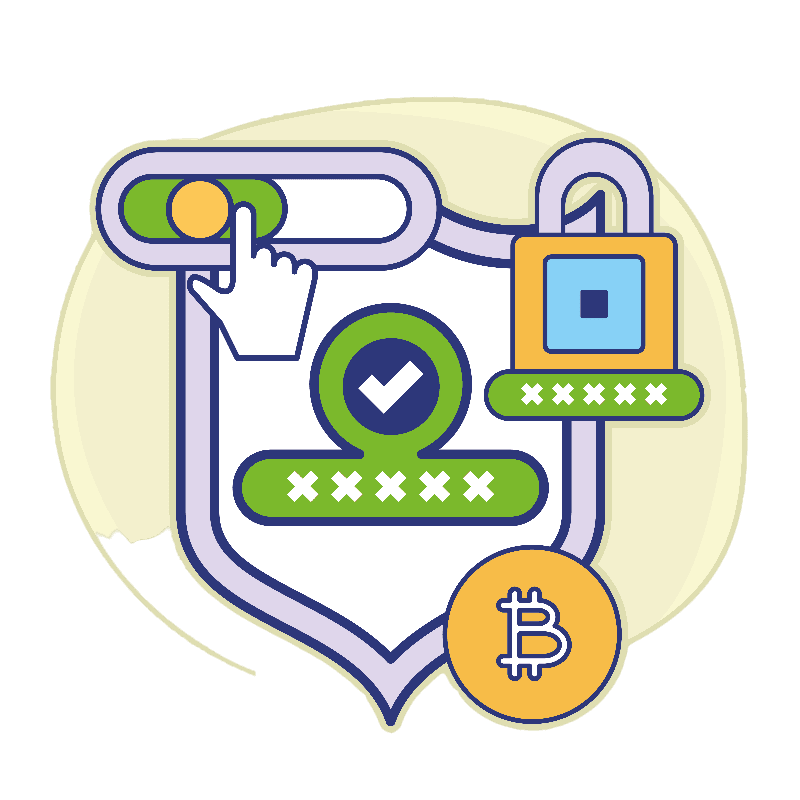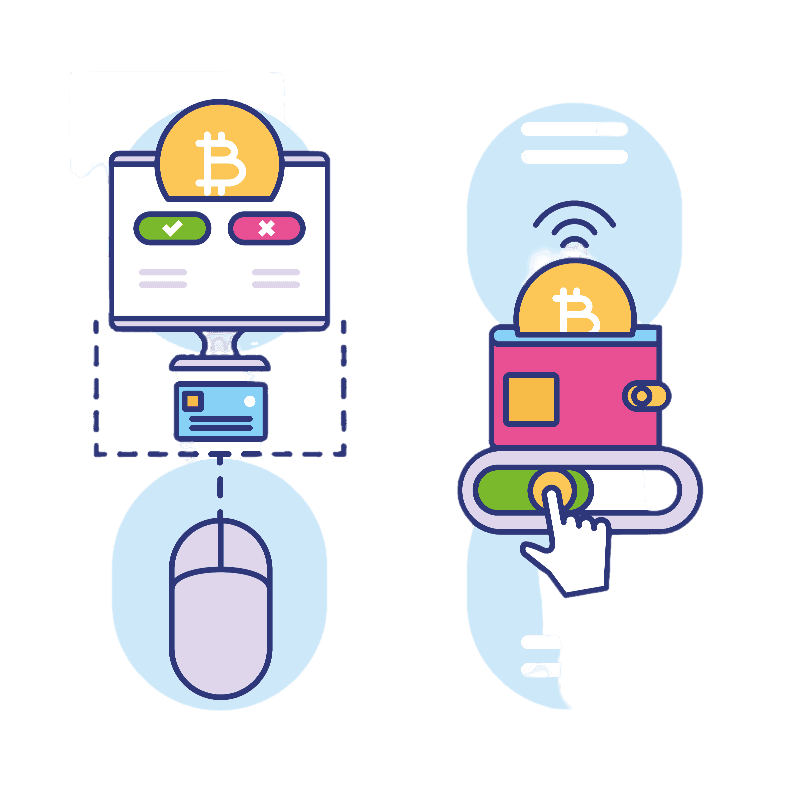
As cryptocurrencies grow in popularity, so too does the need for anonymous crypto wallets that can protect user privacy. Cryptocurrencies were originally conceived as a way to enable fast, borderless, decentralized digital payments without relying on traditional financial institutions. However, most cryptocurrency transactions are recorded on public blockchains like Bitcoin and Ethereum. This creates a permanent record that can reveal a user’s identity and transaction history.
Enter anonymous crypto wallets. These wallets use advanced cryptographic techniques to obscure a user’s identity and transaction details. Anonymous wallets enhance financial privacy and freedom – values important to the original cypherpunk visionaries who developed cryptocurrency technology. This article will explore the following aspects of anonymous crypto wallets:
– Why anonymity matters in crypto
– Different types of anonymity in crypto wallets
– Top anonymous wallet projects
– Using mixers and tumblers to enhance anonymity
– Opsec and usage tips for anonymous wallets
– The future of anonymous wallets
Why Anonymity Matters in Crypto
Most early cryptocurrency users valued privacy and autonomy above all else. However, as crypto has gone mainstream, convenience and ease of use have become higher priorities for some users. Nonetheless, there are still important reasons why anonymity remains crucial:
Avoid identity theft – Blockchains are public, meaning anyone can see account balances and transactions. Anonymous wallets prevent this.
Obscure wealth – Public addresses show assets. Anonymous wallets conceal wealth from prying eyes.
Avoid surveillance – Authoritarian regimes and corporations conduct blockchain surveillance. Anonymous wallets make monitoring difficult.
Cybersecurity – Hidden identities provide better protection against hacking, phishing, and targeted attacks.
Ideological reasons – Some view financial privacy as a fundamental human right that should be protected.
Avoid censorship – Irreversible crypto transactions can resist censorship better when identities are unknown.

While anonymity has benefits, it can also raise concerns about facilitating crime, tax evasion, and money laundering. However, most experts believe the pros of crypto privacy outweigh the cons, especially as mass surveillance grows. Anonymous wallets preserve important privacy rights.
Types of Anonymity in Crypto Wallets
There are various techniques anonymous crypto wallets use to preserve user privacy:
Pseudonymity – Wallets generate a unique public address for each transaction, obscuring links between addresses.
Mixing – Coins are mixed with other users’ coins before being sent to dissociate the transaction trail.
Tor/VPNs – Routing wallet traffic through Tor or VPNs conceals IP addresses.
Ring Signatures – Transactions are signed on behalf of a group, providing denial of involvement.
Stealth Addresses – Random single-use addresses are generated for receiving each payment.
Zero-Knowledge Proofs – Mathematical proofs confirm validity without revealing additional information.
Combining multiple privacy techniques results in different anonymity levels:
– Level 1 – Pseudonymity alone separates wallet from identity but allows transaction monitoring.
– Level 2 – Mixing breaks transaction links but can still be unraveled with analysis.
– Level 3 – Advanced cryptographic techniques fully break sending and receiving links.
– Level 4 – Metadata like IP addresses are cloaked via Tor/VPNs for maximum anonymity.
Top Anonymous Wallet Projects
Here are some of the leading anonymous crypto wallet projects:
Monero (XMR) – Created in 2014, Monero is the largest fully anonymous cryptocurrency and wallet. It obscures sender, receiver, and amounts via ring signatures and stealth addresses.
Zcash (ZEC) – Forked from Bitcoin, Zcash offers selective transparency using zero-knowledge proofs called zk-SNARKs. It conceals transaction details but shows supply.
Dash – Originally Darkcoin, Dash offers private transactions using a decentralized mixing service called PrivateSend. It also has instant transactions.
Horizen (ZEN) – Another fork of Bitcoin, Horizen uses zk-SNARKs for private transactions and leverages a sidechain for faster throughput.
Grin – This cryptocurrency implements MimbleWimble, an anonymity protocol named after a Harry Potter tongue-tying curse. It relies on confidential transactions.
MobileCoin (MOB) – Touted as a privacy coin for mobile payments, MobileCoin is built using the Ring Confidential Transactions protocol originally created for the Monero wallet.
Non-crypto wallets like Abra also allow coin mixing to provide some anonymity without using a dedicated privacy coin. Overall, the anonymous wallet ecosystem continues to expand and deliver more robust anonymity solutions.
Using Mixers and Tumblers to Enhance Anonymity
Many anonymous crypto wallets include built-in coin mixing services to break transaction trails. However, additional mixers and tumblers are available to enhance privacy:
Mixers – Pool user funds, then randomly redistribute them in equal parts to mask original sources.
Tumblers – Like mixers but split and combine funds in unequal parts multiple times for greater obfuscation.
Bitcoin mixers – The most common since Bitcoin lacks native mixing. Wasabi Wallet and Bitcoin Mixer are popular.
Ethereum mixers – A growing need as Ethereum expands beyond finance into NFTs and Web3 identity. Aztec and Tornado Cash provide ETH mixing.
Monero mixers – Since Monero already mixes, dedicated tumblers provide supplemental privacy. CryptMixer offers Monero mixing.
Dash mixers – Special tumblers for Dash like PrivCoin compliment its PrivateSend feature.
Third-party crypto mixers carry risks of theft or hacking, so caution is advised. However, properly implemented mixing on reputable platforms can make wallet transactions significantly more private.
Opsec and Usage Tips for Anonymous Wallets

To safely leverage the anonymity of private crypto wallets, users should follow these operational security and usage best practices:
Generate unique receiving addresses – Reusing addresses links transactions together.
Don’t reuse wallets across services – Keeping wallets for different purposes avoids cross-contamination of transaction histories.
Use Tor/VPNs to prevent IP tracking – Mask your IP address from surveillance or network analysis.
Don’t link wallets to real identity – Avoid KYC procedures when possible, or use only disposable burner wallets.
Avoid Bitcoin ATMs – Most collect identity details, compromising anonymity.
Be careful with exchanges – Major exchanges collect excessive personal data. Use decentralized platforms when possible.
Manage transaction timing – Sporadic, irregular transaction timing is less trackable than routine payments.
Split funds across multiple wallets – Keeping all assets in one place is risky. Spread them out.
Beware correlation attacks – Transaction amounts and timing can be analyzed to match wallets across blockchain ledgers.
Adopting careful usage habits is key to maximizing the privacy benefits of anonymous wallets. No single precaution is perfect, but combining protections significantly enhances anonymity.
The Future of Anonymous Wallets
The development of anonymous cryptocurrency wallets is likely to accelerate to meet the growing demand for privacy. Here are several emerging trends to expect:
More mixer integration – Native mixing features will continue expanding across wallets and protocols.
Mobile optimization – Anonymous wallets for mobile and apps could drive mainstream adoption.
Sidechain adoption – New sidechains will allow privacy-enhanced versions of popular coins like Bitcoin.
Wallet Interoperability – Support for cross-chain transactions between anonymous crypto ecosystems.
Regulatory pressure – Governments may push for more transparency and compliance obligations.
Web3 integration – Anonymous wallet tech combined with self-sovereign identity and decentralized domains.
Overall, anonymous wallets are advancing rapidly to create more robust and usable financial privacy for the Web3 era. While regulatory hurdles persist, user demand and technical innovation seem poised to push anonymous crypto wallets into the mainstream. Leading projects appear dedicated to making financial privacy accessible for everyone.
Conclusion
Anonymous crypto wallets provide essential privacy for financial transactions on public blockchains. As government surveillance and corporate data collection run rampant, anonymous wallets empower users to take control of their financial data. With advanced cryptographic techniques, these wallets conceal account balances, transaction details, and IP addresses to generate true anonymity. While regulators may resist, anonymous wallets could emerge as a necessary check on financial censorship as adoption spreads. The future looks bright for private crypto wallets to deliver on the original cypherpunk vision – an open monetary system with user autonomy and consent at its core.